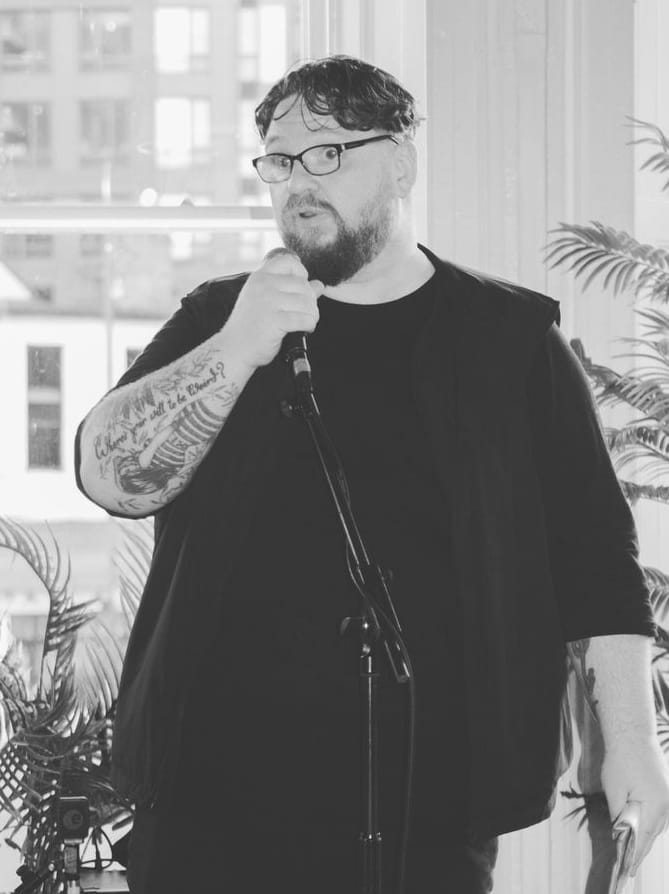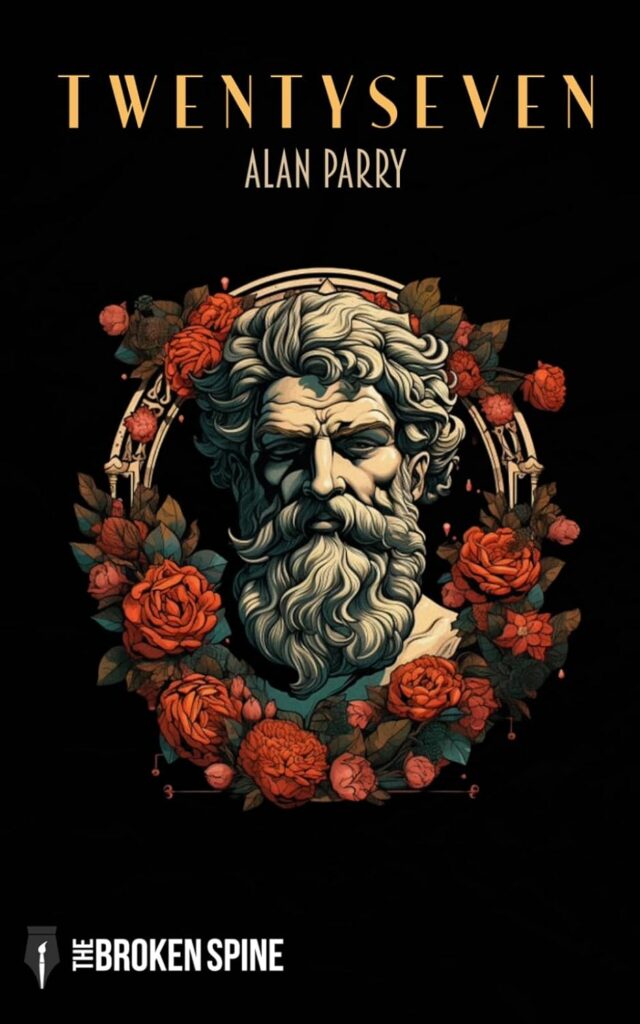
Poetry & Pints: The Broken Spine Live Lands at The Grasshopper, Southport
On Saturday 31 January 2026, The Broken Spine Live rolls back into Southport for an evening of raw words and real ale,

Alan Parry is a writer, and the Founding Editor-in-Chief of The Broken Spine, based in Southport, UK. With a background in English Lit and Popular Culture, his work explores masculinity, media, and counterculture. Since his debut chapbook Neon Ghosts (2020), he’s released several acclaimed titles, including Belisama, Echoes, Twenty Seven, and Peeling Apples. His spoken word show Noir premiered in 2023. Alan champions new voices through Slimline anthologies, mentorship, and inclusive open mics. Under his leadership, The Broken Spine has produced thirty publications and continues to grow as a hub for bold, untamed writing.

Neon Ghosts is a slow-burning detonation, grief, lust, and music pulse through these pages like streetlight through rain. Alan Parry writes with cinematic precision and emotional rawness, capturing the flicker of memory, masculinity, and the melancholy beauty of everyday scenes. These poems are snapshots: cigarette smoke under a blushing moon, the soft thud of desire behind closed doors, the ghost of a friend in an old town. Parry doesn’t waste a word, he leaves bite marks. For readers who like their poetry lean, sharp, and soaked in atmosphere, this chapbook delivers exactly what its title promises: ghosts, glowing in the dark.
“today / i could return to those valleys / but everything will have changed”
— Snowdonia

Twenty Seven is a gritty, hallucinatory road trip through memory, lust, and loss, written in blood and neon. Alan Parry channels the ghost of Jim Morrison not as imitation, but invocation, crafting poems that burn like motel signage and whisper like prayers through static. These pages pulse with dangerous beauty: cheap lights, funeral butterflies, and lovers who kiss like fire. Whether you’re drawn to the Beats, haunted by Rimbaud, or just craving poetry that cuts deep and lingers, this collection hits hard. It’s a tribute, a reckoning, and a strange, beautiful trip you won’t forget.
“we bruised like tyres”
— As Children
‘The poems in Neon Ghosts reveal a longing for human connection and an internal struggle between the primal and the domestic. They are poised to take flight, ‘plotting escape – somewhere different,’ – the wide streets of Paris, the America Stuart Davis knew, or Havana, ‘punctured by the lilt of jazz guitars.’ There is a depth of musicality in Alan Parry’s debut, which is concerned with a desire to return to the past, when trees whispered to one another and knots of green and mulberry ensorcelled a small child.’
Mari Elis Dunning – Author of Salacia

On Saturday 31 January 2026, The Broken Spine Live rolls back into Southport for an evening of raw words and real ale,

Gig Review: Stereophonics at M&S Bank Arena, Liverpool – 16 December 2025 I have loved Stereophonics since the day I bought Local

History has nudged Slade from cultural force to kitsch cartoon glam, without stripping away the warmth, humour, or end-of-night singalong spirit that
The Broken Spine is a poetry and arts collective proudly published on the coastal edge of North-West England. Founded in 2019 by Alan Parry and Paul Robert Mullen – two school friends reunited after twenty years through a mutual love of poetry.